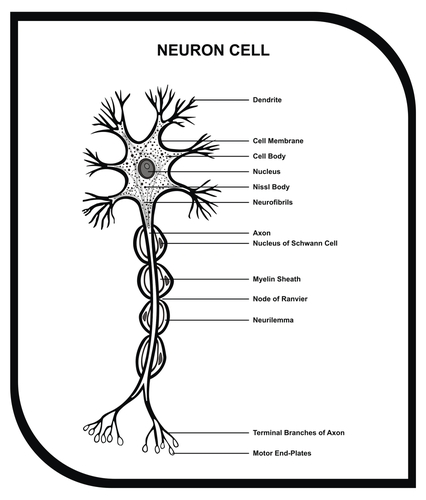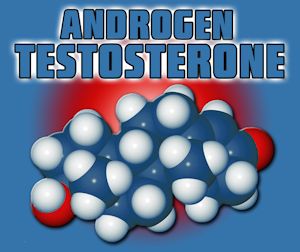 Though we ultimately associate Testosterone with libido, masculinity, and sexuality, Testosterone plays an influential role in maintaining and optimizing health.
Though we ultimately associate Testosterone with libido, masculinity, and sexuality, Testosterone plays an influential role in maintaining and optimizing health.
The influence of Testosterone has a significant effect on the incidence and prevalence of a variety of diseases and conditions. For example, men are less prone to osteoporosis than women, because the influence of Testosterone directly contributes to stronger and healthier bones.
It also appears that Testosterone has a strong influence on the prevalence of auto-immune disorders. Women only produce about 1/8th of the Testosterone of their male counterparts, and medical research shows that this leaves women significantly more at risk for conditions related to immune health, such as rheumatoid arthritis, lupus, celiac disease, and multiple sclerosis.
Depending on the situation, women experience auto-immune issues at 3-9 times the rate of men.
Video Link: https://vimeo.com/289158524
Video Download: Click Here To Download Video
Video Stream: Click Here To Stream Video
Many auto-immune problems are age-related, only occurring as individuals grow older. Men that do experience these conditions also appear to suffer from them later in life on average than women.
It's a highly complex subject. Clinical evidence has strongly suggested that Testosterone played a central role in these sex-differences. Luckily, due to advances in medical knowledge, we're beginning to piece together the puzzle.
What Is Multiple Sclerosis?

Multiple Sclerosis is a harrowing medical condition which depletes Central Nervous System function by interfering with the normal operation of neurons. Our neurons are encapsulated by a cell membrane known as the Myelin Sheath.
Any condition which breaks down this cell membrane will have detrimental effects on human function and rapidly increases the mortality rate. Multiple Sclerosis is an auto-immune disease which is caused by the runaway production of Th17.
Under normal circumstances, the body uses Th17 as a means to fight off infection, but in the case of Multiple Sclerosis, elevated levels of the cytokine wreak havoc on the Central Nervous System, leading to symptoms such as loss of cognitive function, motor control, and tremors.
Patients with Multiple Sclerosis have their lives shortened by 7-14 years on average and experience an extreme decline in quality of life.
Animal Research Regarding Testosterone and Multiple Sclerosis
As with most medical disorders, Multiple Sclerosis is a condition that can afflict other mammals, which is a boon to researchers. In a recent study, scientists analyzed how Testosterone modulates Multiple Sclerosis in mice.
Unfortunately, Testosterone Therapy is of limited use and availability for female patients for obvious reasons, but by studying the immune cells that are influenced by Testosterone, we can come up with treatments that help women overcome the auto-immune issues that are directly correlated with their lower concentrations of Serum Testosterone.
This research, which was published in a recent publication of PNAS, concentrated primarily on mast cells, which play a role in inflammatory response.
The name of the article is Male-specific IL-33 expression regulates sex-dimorphic EAE susceptibility. These cells exist in their highest quantity in human connective tissue.
These cells cause the flare-ups associated with an allergic reaction, and their function is suppressed by anti-histamine medication. There are also mast cells in the lymphatic system, and it appears that Testosterone has a direct influence on the inflammatory cells of the lymph nodes, the CNS, and even the brain.
Mast Cells function differently depending upon the sex of the mouse because of the influence of Testosterone. In male mice, these cells aren't nearly as active, but in female mice, mast cells are prone to produce higher levels of inflammation-inducing cytokines.
Cytokines are hormones associated with the immune system which send messages throughout the body regarding the body's physiological defense mechanisms.
Some of these cytokines amp up an immune response, while others suppress the activity of the immune system.
Testosterone Encourages the Production of Cytokines Which Suppress Inflammation
 What researchers discovered when working with mice is that Testosterone encourages the production of a cytokine associated with immune inhibition, meaning that it downwardly modulates the inflammatory response.
What researchers discovered when working with mice is that Testosterone encourages the production of a cytokine associated with immune inhibition, meaning that it downwardly modulates the inflammatory response.
This cytokine is known as Interleukin 33.
About Multiple Sclerosis, anti-inflammatory cytokines appear to be the body's primary line of defense. In rodents born without Mast Cells, Multiple Sclerosis is more common, in close range of its incidence among females of the species.
This means that Multiple Sclerosis is not caused by Cytokines which promote inflammation, but by a lack of activity among Cytokines which suppress immune function.
Current and Future Treatments for Multiple Sclerosis
This research breakthrough is incredibly exciting because it opens the door for future effective treatments for Multiple Sclerosis.
Two of the most commonly prescribed drugs for Multiple Sclerosis both work by creating a more masculine immune system—meaning that they encourage the female immune system to have T-Cell Concentrations closer to that of men.
Men tend to have more T-Cells that inhibit inflammation than promote it.
Though it's still too early to say with 100% certainty, this new research will most likely lead to vast improvements in the way that we treat multiple sclerosis for both sexes, though mainly for women.
Treatments which utilize Interleukin 33 or imitate the effects of this cytokine will have a significant impact on the future of Multiple-Sclerosis treatment, management, and perhaps eventually, even prevention.
Reference
Men hold secret to protect women from multiple sclerosis
Contact Us Today For A Free Consultation

- Testosterone for Women [Last Updated On: December 1st, 2023] [Originally Added On: December 29th, 2013]
- Testosterone Androgen [Last Updated On: December 11th, 2023] [Originally Added On: December 29th, 2013]
- Testosterone and Body Building [Last Updated On: December 14th, 2023] [Originally Added On: December 30th, 2013]
- Testosterone Levels [Last Updated On: December 6th, 2023] [Originally Added On: December 31st, 2013]
- Testosterone Gel, Cream, and the Testosterone Patch [Last Updated On: November 28th, 2023] [Originally Added On: December 31st, 2013]
- Buy Testosterone | Types of Testosterone Replacement Therapy Programs, Injections, Cream and Gel [Last Updated On: December 13th, 2023] [Originally Added On: December 31st, 2013]
- Buy Testosterone Injections Online, Testosterone Prescription for Low T, Testosterone Replacement Therapy [Last Updated On: October 16th, 2020] [Originally Added On: January 1st, 2014]
- Aging and Testosterone Replacement Therapy [Last Updated On: December 12th, 2023] [Originally Added On: January 3rd, 2014]
- What Causes Low Testosterone [Last Updated On: December 10th, 2023] [Originally Added On: January 7th, 2014]
- Hormone Levels in Men [Last Updated On: December 4th, 2023] [Originally Added On: January 12th, 2014]
- Hormone Level Testing [Last Updated On: November 29th, 2023] [Originally Added On: January 13th, 2014]
- Types of Testosterone Products and Delivery [Last Updated On: December 8th, 2023] [Originally Added On: January 22nd, 2014]
- Testosterone Therapy Helps Men with Low-T Ward Off Prostate Cancer [Last Updated On: May 29th, 2024] [Originally Added On: December 29th, 2019]
- The Importance of Dietary Fat for Testosterone Production [Last Updated On: July 8th, 2024] [Originally Added On: January 2nd, 2020]
- Testosterone Deficiency and Low-T at Epidemic Levels Among Men in the United States [Last Updated On: May 27th, 2024] [Originally Added On: May 17th, 2020]
- The Effects of Testosterone Therapy on Male Patients -- Who Should Use Testosterone? [Last Updated On: December 20th, 2023] [Originally Added On: June 16th, 2020]
- Does Ibuprofen Contribute to Low Testosterone? [Last Updated On: January 27th, 2024] [Originally Added On: June 20th, 2020]
- Weight Cycling and the Problem with Crash Dieting [Last Updated On: April 8th, 2024] [Originally Added On: July 30th, 2020]
- Reexamining Bio-Identical Testosterone Therapy [Last Updated On: June 18th, 2024] [Originally Added On: August 12th, 2020]
- Understanding how Muscle and Fat Impact Body Mass, Weight, and Health [Last Updated On: April 15th, 2024] [Originally Added On: August 25th, 2020]
- The Role of Nitric Oxide in Cancer Proliferation And Prevention [Last Updated On: May 3rd, 2024] [Originally Added On: August 26th, 2020]
- Understanding Heartburn in the 21st Century [Last Updated On: April 24th, 2024] [Originally Added On: August 28th, 2020]
- What is Erectile Dysfunction? [Last Updated On: April 20th, 2024] [Originally Added On: August 30th, 2020]
- Sermorelin Acetate Drug Information [Last Updated On: April 7th, 2024] [Originally Added On: August 31st, 2020]
- Exercise and Mental Health [Last Updated On: April 5th, 2024] [Originally Added On: September 1st, 2020]
- The Importance of Proteins, Carbs, and Fats [Last Updated On: March 11th, 2024] [Originally Added On: September 2nd, 2020]
- Low-T Treatment Before and After -- How Testosterone Therapy Improves Vitality [Last Updated On: April 9th, 2024] [Originally Added On: September 6th, 2020]
- Changes to LabCorp Guidelines for Low-T Diagnosis and How They Impact Your Treatment [Last Updated On: July 14th, 2024] [Originally Added On: September 22nd, 2020]
- The Effects of Testosterone on Asthma Prevalence Among Men and Women [Last Updated On: February 19th, 2024] [Originally Added On: October 6th, 2020]
- 7 Exercises to Elevate Testosterone Levels [Last Updated On: June 13th, 2024] [Originally Added On: October 10th, 2020]
- Vitamin A is Essential for Good Health - Are You Getting Enough ? [Last Updated On: April 16th, 2024] [Originally Added On: October 14th, 2020]
- Testosterone and Diet – How to Support Testosterone Levels with Healthy Eating [Last Updated On: June 7th, 2024] [Originally Added On: October 29th, 2020]
- The Significance of Telomeres in Stem Cell Treatments [Last Updated On: March 16th, 2024] [Originally Added On: November 27th, 2020]
- The Influence of Testosterone on Protective Mating Behaviors in Men [Last Updated On: January 25th, 2024] [Originally Added On: December 6th, 2020]
- The Role of Testosterone in Women's Health [Last Updated On: December 24th, 2023] [Originally Added On: December 7th, 2020]
- Testosterone Promotes Bone Health and Can Help Treat Osteoporosis [Last Updated On: February 15th, 2024] [Originally Added On: December 17th, 2020]
- The Relationship Between Testosterone and Cortisol [Last Updated On: April 2nd, 2024] [Originally Added On: December 19th, 2020]
- The Importance of Sex Hormone-Binding Globulin (SHBG) for Healthy Testosterone Levels [Last Updated On: March 9th, 2024] [Originally Added On: December 28th, 2020]
- 12 Health Issues That Can Kill Libido and Limit Sexual Performance [Last Updated On: May 23rd, 2024] [Originally Added On: January 3rd, 2021]
- 4 Foods to Boost Your Testosterone Levels [Last Updated On: February 7th, 2024] [Originally Added On: January 4th, 2021]
- Low Testosterone Symptoms [Last Updated On: December 31st, 2023] [Originally Added On: January 7th, 2021]
- Is Male Menopause Real? The Science of Andropause [Last Updated On: January 15th, 2024] [Originally Added On: January 11th, 2021]
- Relieve Fatigue and Increase Energy with Testosterone Replacement Therapy [Last Updated On: January 16th, 2024] [Originally Added On: January 16th, 2021]
- How to Administer a Testosterone Injection -- Low-T Injection Guide [Last Updated On: February 28th, 2024] [Originally Added On: January 17th, 2021]
- Testosterone Levels Associated with Serotonin Activity in the Brain [Last Updated On: March 26th, 2024] [Originally Added On: January 19th, 2021]
- Grumpy Old Man Syndrome – Causes and Treatments [Last Updated On: June 8th, 2024] [Originally Added On: January 22nd, 2021]
- The Effects of Beer on Testosterone Production and Gynecomastia [Last Updated On: March 21st, 2024] [Originally Added On: January 30th, 2021]
- Testosterone Frequently Asked Questions [Last Updated On: February 6th, 2024] [Originally Added On: February 26th, 2021]
- Testosterone Supplements: Vitamin and Amino Acid Pills Versus Real Testosterone [Last Updated On: November 21st, 2024] [Originally Added On: March 1st, 2021]
- Testosterone Side Effects, Risks, Dangers and Negative Effects [Last Updated On: November 7th, 2024] [Originally Added On: March 2nd, 2021]
- Testosterone for Men [Last Updated On: February 20th, 2024] [Originally Added On: April 13th, 2021]
- Testosterone Testing [Last Updated On: November 9th, 2024] [Originally Added On: May 7th, 2021]
- Hormone Replacement Therapy: Commonly Asked Questions [Last Updated On: February 20th, 2024] [Originally Added On: June 16th, 2023]
Word Count: 878




















